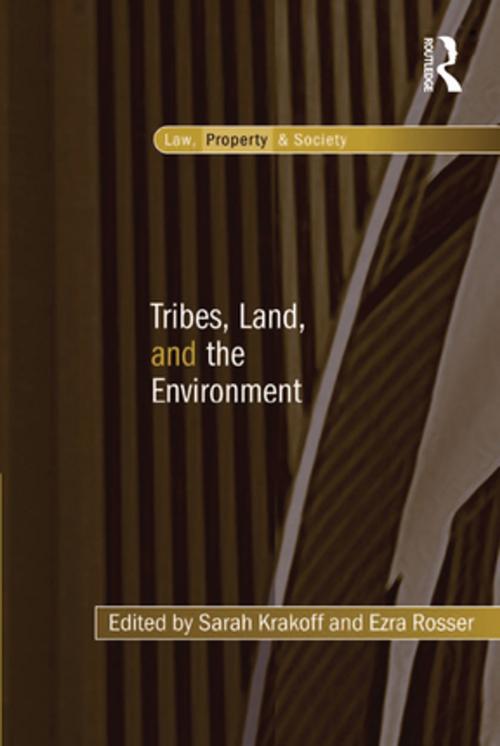| Author: | Sarah Krakoff | ISBN: | 9781317006305 |
| Publisher: | Taylor and Francis | Publication: | February 17, 2016 |
| Imprint: | Routledge | Language: | English |
| Author: | Sarah Krakoff |
| ISBN: | 9781317006305 |
| Publisher: | Taylor and Francis |
| Publication: | February 17, 2016 |
| Imprint: | Routledge |
| Language: | English |
Legal and environmental concerns related to Indian law and tribal lands remain an understudied branch of both indigenous law and environmental law. Native American tribes have a far more complex relationship with the environment than is captured by the stereotype of Indians as environmental stewards. Meaningful tribal sovereignty requires that non-Indians recognize the right of Indians to determine their own relationship to the land and the environment. But tribes do not exist in a vacuum: in fact they are deeply affected by off-reservation activities and, similarly, tribal choices often have effects on nearby communities. This book brings together diverse essays by leading Indian law scholars across the disciplines of indigenous and environmental law. The chapters reveal the difficulties encountered by Native American tribes in attempts to establish their own environmental standards within federal Indian law and environmental law structures. Gleaning new insights from a focus on tribal land and property law, the collection studies the practice of tribal sovereignty as experienced by Indians and non-Indians, with an emphasis on the development and regulatory challenges these tribes face in the wake of climate change. This volume will advance the reader's knowledge and understanding of these challenging issues.
Legal and environmental concerns related to Indian law and tribal lands remain an understudied branch of both indigenous law and environmental law. Native American tribes have a far more complex relationship with the environment than is captured by the stereotype of Indians as environmental stewards. Meaningful tribal sovereignty requires that non-Indians recognize the right of Indians to determine their own relationship to the land and the environment. But tribes do not exist in a vacuum: in fact they are deeply affected by off-reservation activities and, similarly, tribal choices often have effects on nearby communities. This book brings together diverse essays by leading Indian law scholars across the disciplines of indigenous and environmental law. The chapters reveal the difficulties encountered by Native American tribes in attempts to establish their own environmental standards within federal Indian law and environmental law structures. Gleaning new insights from a focus on tribal land and property law, the collection studies the practice of tribal sovereignty as experienced by Indians and non-Indians, with an emphasis on the development and regulatory challenges these tribes face in the wake of climate change. This volume will advance the reader's knowledge and understanding of these challenging issues.















